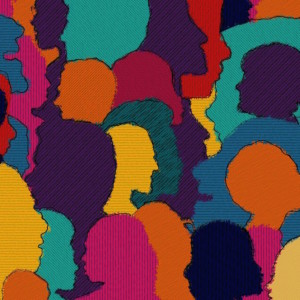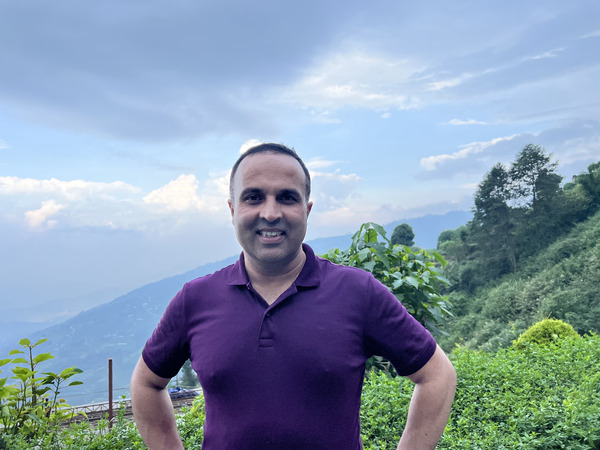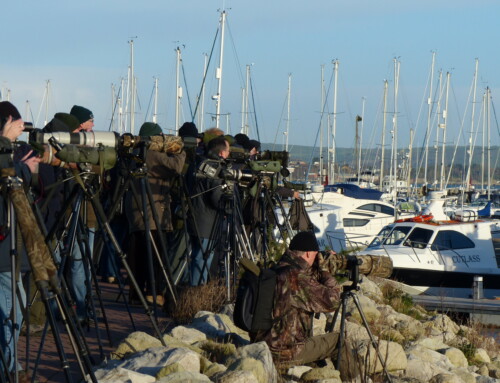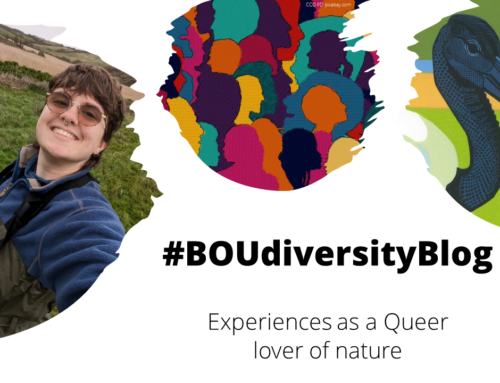
Breaking Boundaries: Decolonising and Diversifying Conservation
Hello, dear readers! I am eager to share my thoughts and experiences with you on the topic of decolonising and diversifying the conservation sector. As a member of the Policy Team at BirdLife International’s Global Secretariat in Cambridge, I have come to realise the immense value that efforts to decolonise and diversify play in shaping conservation policies and actions.
Conservation efforts have undergone significant transformations over the years, moving away from the colonial approaches of the “fortress” or “wilderness” model towards a more inclusive and equitable approach. Decolonising conservation is a multifaceted approach that involves rethinking and transforming conservation planning and actions to address the historical injustices and impacts of colonialism on conservation practices. It aims to move towards more just, fair, and ethical approaches while prioritising local contexts and perspectives. Empowering indigenous peoples, local communities, marginalised groups, women, and youth in conservation decision-making is a central goal of this process. In this blog, I explore the significance of decolonising conservation and the unique role that the conservation sector and environmental organisations, like BirdLife, can play in this transformative journey.
However, it is essential for conservation sector and environmental organisations to go beyond expressing interest and commitment to decolonising conservation and take active actions towards becoming truly diverse and inclusive organisations. The 2022 Race Report reveals that the representation of people who identify as people of colour and racially or ethnically marginalised groups is just 7% which remains below national average. Moreover, the analysis highlights the unequal distribution of managerial roles, with these individuals less likely to hold such positions and being disproportionately represented in non-permanent roles. This underscores the urgent need to address multiple barriers faced by the marginalised communities, including people of colour, within the conservation field.
Recent studies in ornithology and conservation have also shed light on the necessity of decolonising and diversifying the sectors. For instance, Soares et al. (2023) emphasise that a significant obstacle to progress in ornithology is the systemic exclusion of researchers from the Global South, which results from the dominance of northern lens, practice of “parachute” science, language hegemony, biases in funding and publication, and other inequities. Likewise, Amano et al. (2023) present survey results from 908 environmental science researchers, illustrating how the widespread use of English as the lingua franca of science hinders the full potential contribution of non-native English speakers to the field. These findings underscore the importance of actively working towards decolonising and diversifying conservation to foster a more inclusive and impactful field for all.
My personal journey

I was born and raised in the foothills of the Himalayas, where I had the privilege of witnessing the close interactions between local people and nature. This experience ignited my passion for studying and working in the conservation and development sector, leading me to spend many years in academic research and policy issues. As a child, I lived in a small remote village in Sankhuwasabha, Eastern Nepal, which later became part of the Makalu Barun National Park. There, I observed the local indigenous Rai communities’ simple lifestyle, while also witnessing the challenges they faced due to limited access to basic amenities like electricity and medical facilities. Poverty, underdevelopment, and spatial inequity were prevalent, primarily due to the area’s remoteness. These first-hand experiences shaped my determination to understand and amplify the specific needs, concerns, and priorities of marginalised communities in the Global South, such as pastoralists and agro-pastoralists in Ethiopia and Kenya, indigenous Batwa peoples in Uganda, and ethnic minorities in Vietnam.
Having spent half of my life abroad, studying and working in the UK and traveling to various countries in the Global South for my job, I often find myself navigating between two worlds. While I strive to integrate into the UK, I am equally committed to staying connected with the ground realities of the Global South. One challenge I have encountered is the lack of representation of South Asians and people from the Global South, making it difficult to find role models within organisations. Many of these organisations have yet to fully embrace diversity and inclusivity in their policies and practices, which hinders access and participation of ethnic minorities. Nevertheless, my strong sense of localness and connectedness to communities on the ground, combined with my global aspirations for environmental and development issues, continue to drive my commitment to my work. I always aim to ensure that our conservation policies and advocacy efforts resonate with the local communities in the field.
During the last year’s National Inclusion Week, I had the opportunity to share my personal journey and experiences with BirdLife staff, advocating for diversity and inclusion. I firmly believe that we do not need to be “birds of the same feather” to work together effectively. I have also been sharing my reflections and thoughts with like-minded individuals within conservation organisations who are dedicated to creating inclusive and equitable spaces.
For those working at the intersection of conservation science, policy and practice, it is crucial to remember that evidence-based policymaking can be affected by biases in the research agenda. To mitigate the risk, it is essential to involve national and local partner organisations and engage a diverse range of stakeholders from the outset of any projects. By doing so, we can ensure that our efforts are more inclusive and representative of the diverse perspectives and needs of the communities we aim to serve.
Decolonising approaches
Decolonising approaches in conservation are crucial to foster more inclusive and equitable practices. To guide our actions and conversations in this direction, there are five key areas we can focus on: decolonising narratives, decolonising knowledge, decolonising practices, decolonising voices, and decolonising funding.
- Decolonising narratives involves shifting the focus from blaming local communities and instead understanding the broader impact of destructive production and consumption models of richer nations. By embracing diverse identities, cultures, and histories, we can promote a more inclusive and interconnected approach to conservation that recognises the complex relationship between people and their environments.
- Decolonising knowledge is about acknowledging and integrating local and traditional knowledge alongside Western science in conservation planning. This co-learning journey respects and values knowledge diversity, acknowledging that different ways of knowing can enrich our understanding of environmental issues.
- Decolonising practices emphasises the full and effective participation of various stakeholders, particularly indigenous peoples, local communities, women, girls, and youth, in conservation efforts at the local level. By adopting this approach, conservation decisions are made collaboratively, with mutual trust, respect, and reciprocity, leading to a more sustainable and culturally sensitive outcomes.
- Decolonising voices involves empowering and enabling the agency of indigenous peoples, local communities, women, girls, and youth in conservation decision-making structures and processes. Diverse representation is essential, and efforts should be made to create opportunities for underrepresented groups to have their voices heard in global and national conservation discussions.
- Regarding decolonising funding, the conservation community needs to advocate for directing resources to directly benefit indigenous peoples and local communities affected by conservation efforts. This means ensuring that funding supports their education, health, food security, and overall socio-economic well-being. By redirecting funding to the communities directly impacted by conservation initiatives, we can work towards more equitable and sustainable conservation practices.
Conclusion
Decolonising conservation is a critical step towards achieving a more inclusive, equitable, and effective approach to biodiversity preservation. It aligns with diversity, equity, and inclusion (DEI) initiatives, as it seeks to embrace diversity and representation of under-represented groups in the conservation sector. By acknowledging diverse identities, cultures, and histories, and by valuing local and traditional knowledge alongside Western science, we can foster a co-learning journey that respects knowledge diversity.
Empowering local communities, including indigenous peoples, women, girls, and youth, in conservation decision-making processes is essential for a collaborative and inclusive approach to conservation. Redirecting funding directly to benefit those affected by conservation efforts can promote more equitable and sustainable outcomes.
By embracing these decolonising approaches, conservation organisations can lead the way in driving this transformative movement. Each organization will be on its own journey with these issues, but we need to ensure that the conversation happens. It is through debate and discussion the right approach will be found. As the conservation sector evolves, the vision of a world where conservation efforts genuinely prioritise and benefit local communities and their environments becomes attainable.
Let’s continue to be birds of different feathers, coming together to create a more inclusive and sustainable future for all. Thank you, dear readers, for joining me on this journey of self-reflection and growth as we work towards a more just and interconnected world.
If you are interested in contributing to the #BOUdiversityBlog, please get in touch with us via this form which ensures anonymity for those who seek it.
Image credit: CCO GDJ pixabay.com




